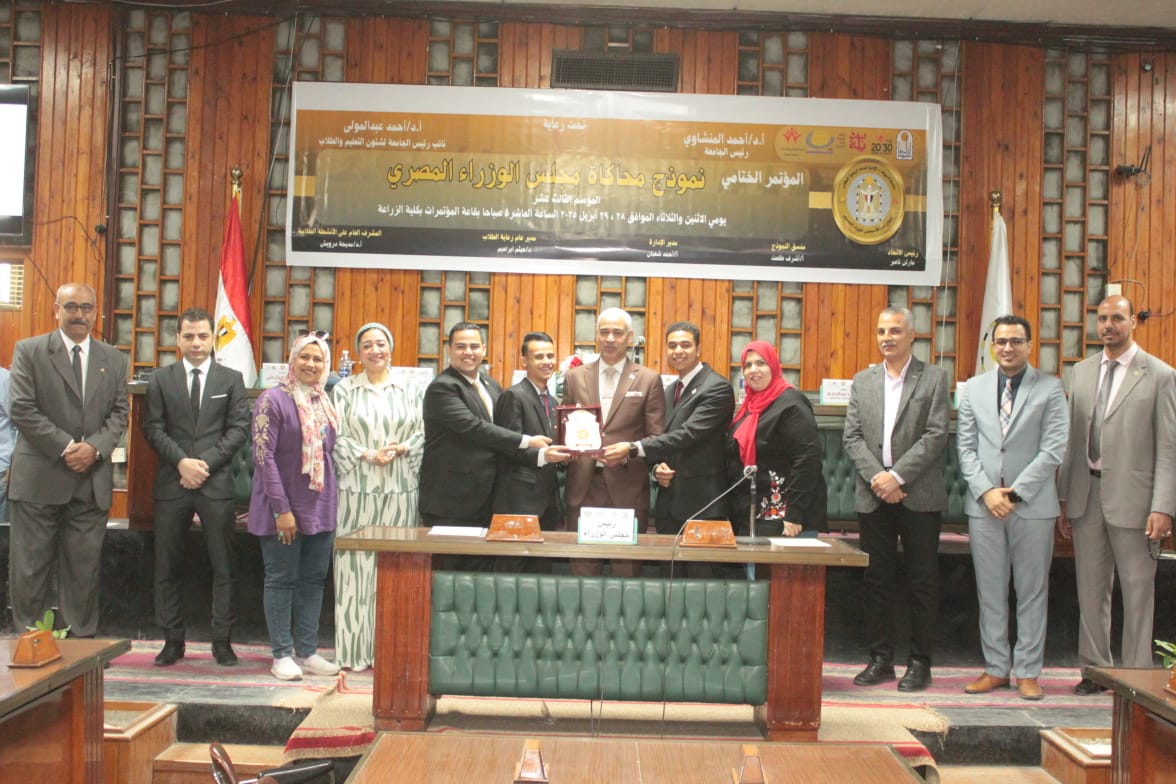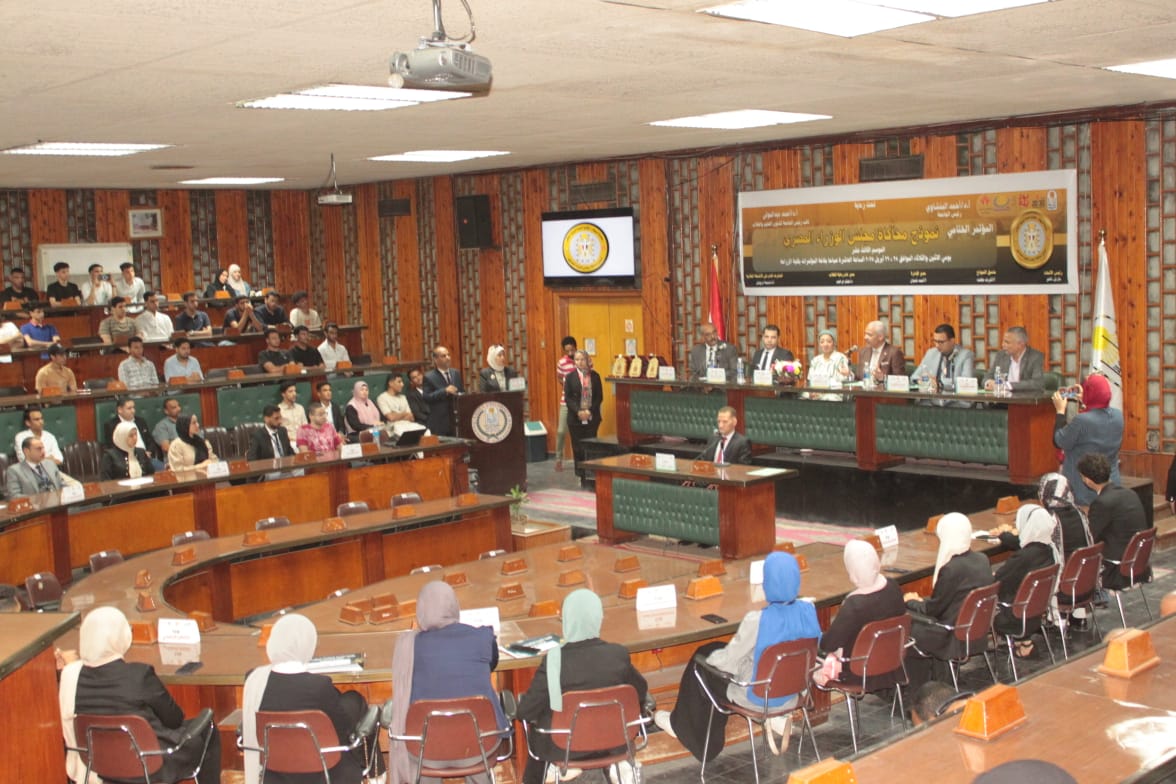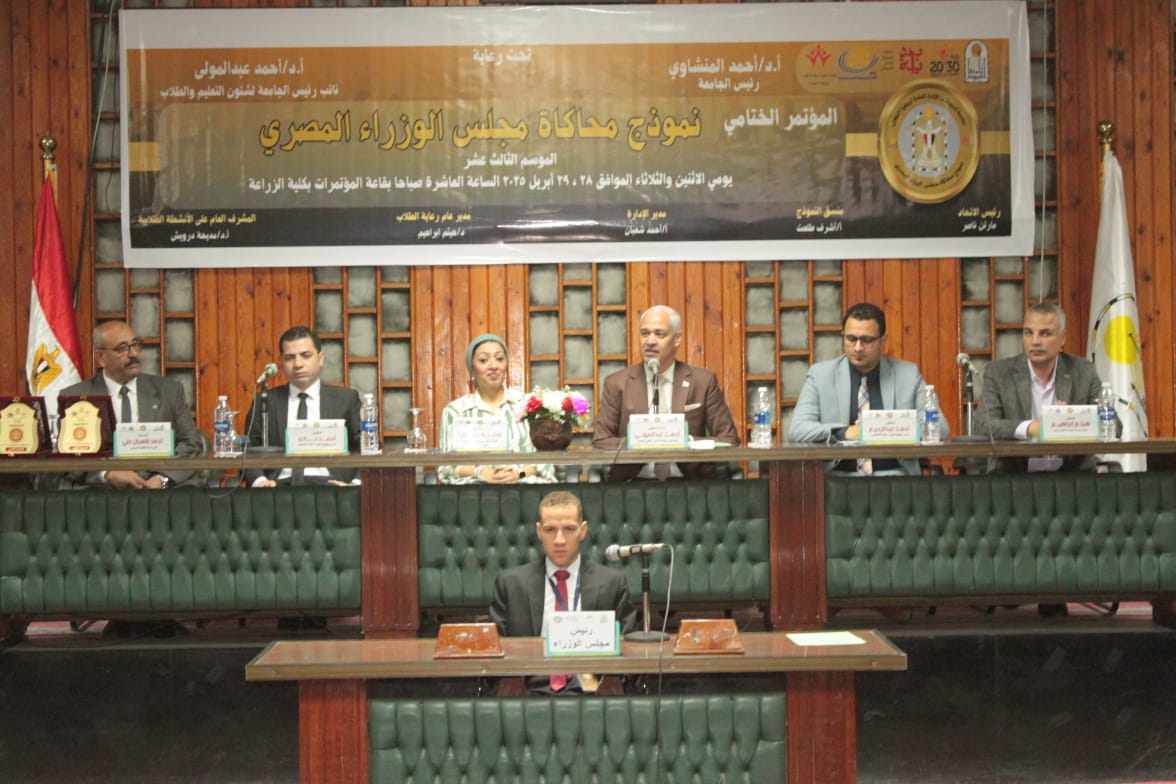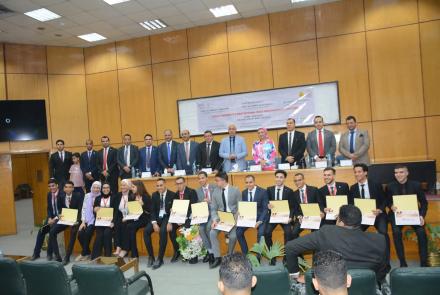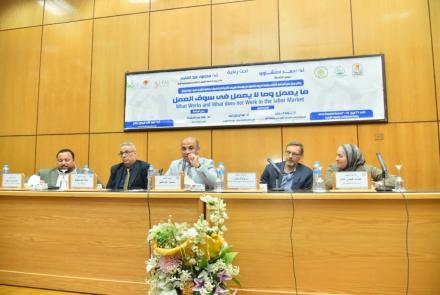Assiut University witnessed the final conference of the Egyptian Council of Ministers simulation model in its thirteenth season, under the auspices of Dr. Ahmed El-Minshawy, president of the University, and under the supervision of Dr. Ahmed Abdel-Mawla, vice president of the University for Education and Student Affairs, Dr. Madiha Darwish, general coordinator of student activities, and Dr. Haitham Ibrahim, Director General of the Youth Welfare Department.
Dr. Ahmed El-Minshawy praised the excellence of the university students and their outstanding performance during the model, stressing that what the students presented reflects their ability to be creative and take responsibility, their deep awareness of the issues of their homeland, and their readiness to actively participate in building the future. He also stressed the University's keenness to support student activities that contribute to developing youth's political, economic, and social awareness, expressing his pride in the understanding and intellectual acumen shown by students during their simulation of government work.
For his side, Dr. Ahmed Abdulmoula explained that the simulation model represented a unique practical experience, through which students had the opportunity to get acquainted with the decision-making mechanisms within the government and develop their political, leadership, and administrative skills. He added that the students were divided into teams representing different ministries, during which they underwent training and supervision from specialists to enhance their ability to provide realistic and innovative solutions to community issues.
The model was implemented under the supervision of Mr. Ahmed Shaaban, director of the Department of Political Education, Mr. Ashraf Talaat, coordinator of the model, and Martin Nasser, president of the University Students ' Union. The jury included Dr. Madiha Darwish, Dr. Ahmed Nadi, and Dr. Ahmed Abdel Rahim from the Faculty of Commerce.
The conference was attended by 10 teams representing different ministerial portfolios, each team consisting of three students in the roles of minister, deputy minister, and Secretary of the ministry. Each team presented a working paper that addressed the most important issues and challenges related to their ministry, with a collective discussion of the ideas and visions put forward.
The events included honoring members of the jury, employees of the political education department, Youth Welfare supervisors at colleges, as well as the president of the student union. Shields were also distributed to the winning colleges, where the Faculty of Law won first place, followed by the Faculty of Commerce in second place, then the Faculty of Physical Education in third place, in addition to presenting individual awards to the best minister, deputy minister, and Ministry secretary, and handing certificates of appreciation to all participating students.
